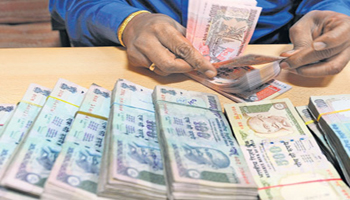
Some tax officials were quoted as saying cooperative banks are notorious for large-scale unaccounted money transactions. At a time when black money has become such a big issue, these banks need to be thoroughly investigated for their money laundering activities, tax officials said.
Some tax collectors are of the view that in order to gain high interest and launder black money politicians, builders, industrialists and the top middle class people put their money in cooperative banks.
Under Income Tax Act, TDS is not required on interest paid by a cooperative society to its members and to any other cooperative society. But these provisions have been removed in the Direct Tax Code.
The Direct Tax Code, introduced in Parliament as Bill, has changed the situation and brought FDs of cooperative banks under tax net.
I-T department is working on a six-month deadline to wrap up probe of FD accounts of all leading cooperative banks in Maharashtra.
To begin with, the department will seek complete details of FD accounts from all these cooperative banks, especially those above Rs.2 lakh.
Later, personal and bank details would be sought from each depositor. According to taxmen, scores of cooperative banks are acting as back-offices for converting black money into white.
Maharashtra has 32 per cent of all cooperative banks in the country. Of the 1,618 urban cooperative banks in the country, Maharashtra itself has 526.
Data shows total deposits in cooperative banks amounts to Rs.1,73, 800 crore. This accounts for 68 per cent of deposits in such banks in the country.




